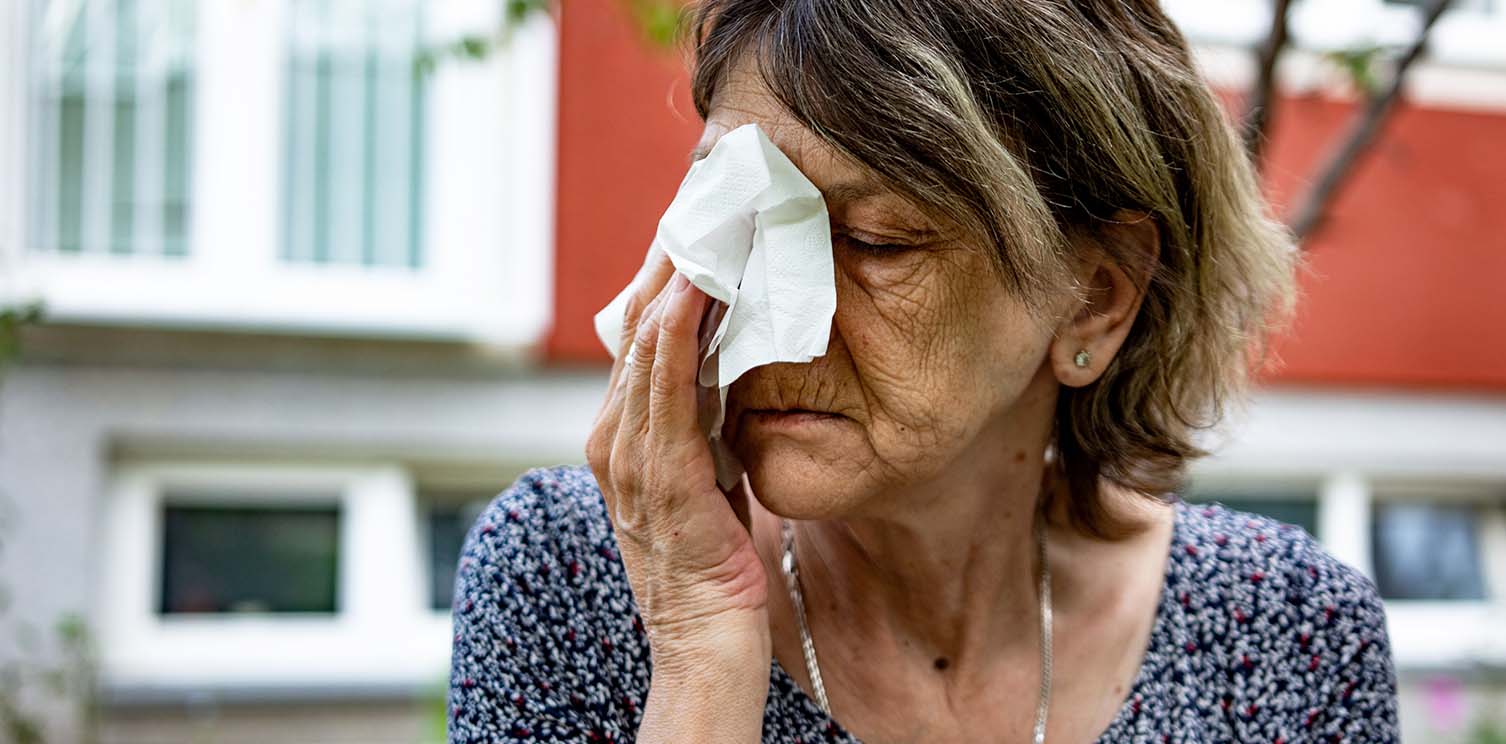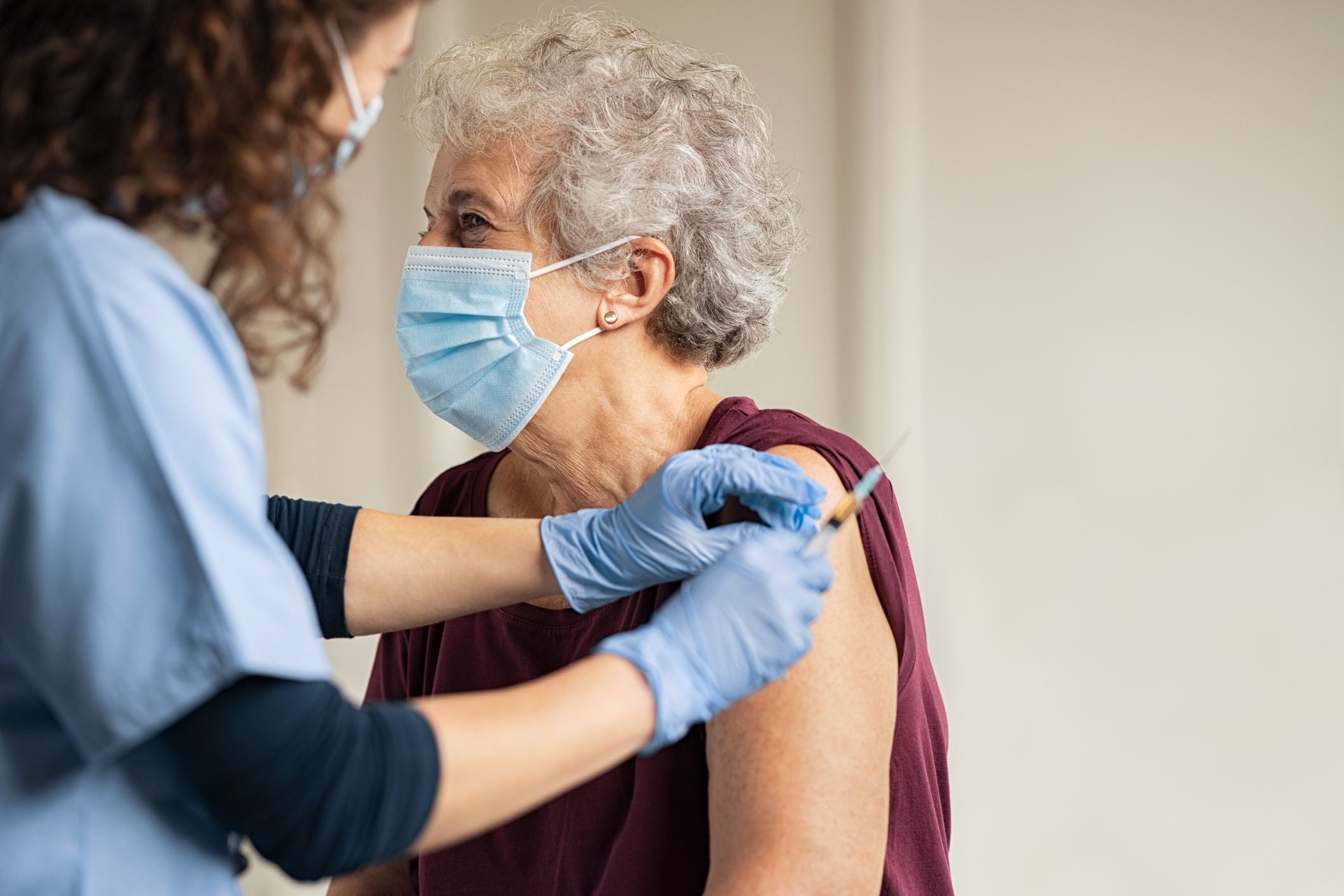Coping With Allergies
Allergies can come at any time of life, even after 65. Here’s the best way to deal with them, whether they’re seasonal or year-round.

Do You Have Allergies?
You may have always dealt with allergies, or they may be new as you’ve gotten older. Most people first have allergic reactions in childhood or young adulthood.
About 5 to 10 percent of people in the U.S. over age 65 either live with chronic allergic reactions or have them for the first time. A reaction happens when your immune system sees a usually harmless substance (an allergen) as an intruder. Common allergens are:
- Dust mites
- Pollen
- Mold
- Pet dander
- Insect stings
- Medicines
- Foods
Your immune system tries to fight off allergens, as it would fight off a germ or virus. But with most allergic reactions, your system’s overreacting.
If you think you’re having an allergic reaction, see your doctor. They can give you a skin or blood test that’ll tell you whether you’re allergic to something. You can use Braven Health’s Doctor Finder to locate a specialist.
Seasonal Hay Fever (Allergic Rhinitis)
Trees, weeds and grasses release pollen in every season but winter. The pollen gets into your nose and throat. Then you have a reaction known as hay fever. About 20 million American adults get hay fever.
Symptoms include:
- Sneezing
- Runny or stuffy nose
- Coughing
- Post-nasal drip
- Itchy eyes
- Nose and throat
- Red and watery eyes
- Dark circles under the eyes
Treatment:
- A nasal steroid or anti-inflammatory medicine that you spray into your nose is the most effective treatment. You can buy this type of spray over the counter.
- Control your environment by staying indoors more when pollen counts are high.
- Use air purifiers and air conditioners.
- If you spend a lot of time outdoors, wash your hands and face often to get rid of pollen.
- You can also take an antihistamine.
Is It a Cold, Flu or Allergy?
Allergies, colds and flus can all make you feel awful and make it hard to breathe. People who have airborne allergies might think they have a cold. When symptoms are severe, they may think they have the flu. Colds and flus are both viruses, but an allergic reaction happens when your immune system responds to an allergen. Here’s how to tell the difference:
Airborne allergies
- Symptoms last as long as allergens are present
- Stuffy and runny nose
- Itchy, watery eyes
- Treat with antihistamines, decongestants, nasal steroids
Flu
- Symptoms can last up to two weeks
- Fever
- Aches and pains
- Exhaustion and weakness
- Chest discomfort and cough
- Treat with fluids, rest, over-the-counter medicine and prescription antiviral drugs
Cold
- Symptoms can last for up to two weeks
- Stuffy and runny nose
- Sore throat and cough
- Treat with antihistamines, decongestants, nasal steroids
Other Types of Allergies
Some of these allergies may present themselves as you get older.
- Drug allergies: Older people take three times as many medicines as younger people, meaning more frequent allergic reactions. An allergy to medicine is more likely when you take it regularly or when it’s rubbed onto the skin or injected.
- Symptoms:
- Skin rashes (especially hives)
- Itching
- Respiratory problems
- Facial swelling
- Anaphylaxis (a life-threatening condition)
- Treatment: Unless symptoms are life-threatening, don’t stop taking medicine without talking to a doctor. They can say whether you should stop taking your medicine and offer a new one. If you’re allergic to a medicine, it should be in your medical record and all your doctors should be told.
- Symptoms:
- Insect allergies: About 2 million Americans are allergic to venom in insect stings. Older adults don’t usually develop insect allergies, but it has happened.
- Symptoms:
- Pain, redness and swelling at the site of the sting
- Swelling of the face, throat or tongue
- Difficulty breathing
- Coughing
- Shortness of breath
- Dizziness
- Stomach cramps
- Nausea and diarrhea
- Itchiness and hives
- Anaphylaxis, within 5 to 30 minutes of being stung or bitten
- Treatment: Patients with a history of anaphylactic reactions to insect stings should carry an epinephrine auto-injector device to treat reactions. Call 911 immediately if you don’t have an injector.
- Symptoms:
- Skin allergies: These happen when the skin comes into contact with an allergen like poison ivy, poison oak or poison sumac, nickel in jewelry or the chemicals in lotions and skin products. Patch testing, a diagnostic method that doesn’t include blood or skin-prick testing, can find the cause.
- Symptoms: Itching, redness and swelling
- Treatment: Don’t scratch it. Use moisturizers and topical ointments and steroids that reduce swelling. Antihistamines can be helpful. If you have a rash that’s persistent or painful, spreads quickly over most of your body, causes a fever or is oozing yellow or green fluid, see a doctor.
- Food allergies: As with insect allergies, reactions to certain foods can be sudden and in some cases life-threatening.
- Symptoms: Mild to serious reactions. They include:
- Hives
- Red and itchy skin
- Itchy or stuffy nose
- Sneezing and itchy and watery eyes
- Vomiting
- Stomach cramps
- Diarrhea
- Swelling
- Anaphylaxis
- Treatment: If you know you have a severe food allergy, you should carry an epinephrine auto-injector with you, and always wear a medical alert bracelet or necklace. If you have a reaction for the first time, see a specialist who can tell you which foods you’re allergic to. To be safe, read food labels and always ask about ingredients when you eat in a restaurant, or eat foods prepared by family or friends.
- Symptoms: Mild to serious reactions. They include:
Popular Tags:
Previous Article

Keeping Your Membership Information Up to Date
Next Article

Is It Time for a Mammogram?

Wellness Starts With Us.
Subscribe for updates.
By providing your email address, you agree to receive communications from Braven Health via email.
Fields marked with an asterisk (*) are required.
Thanks for subscribing.
We just sent you an email to confirm your subscription. Please check your spam/junk folder if you can’t find our email.



